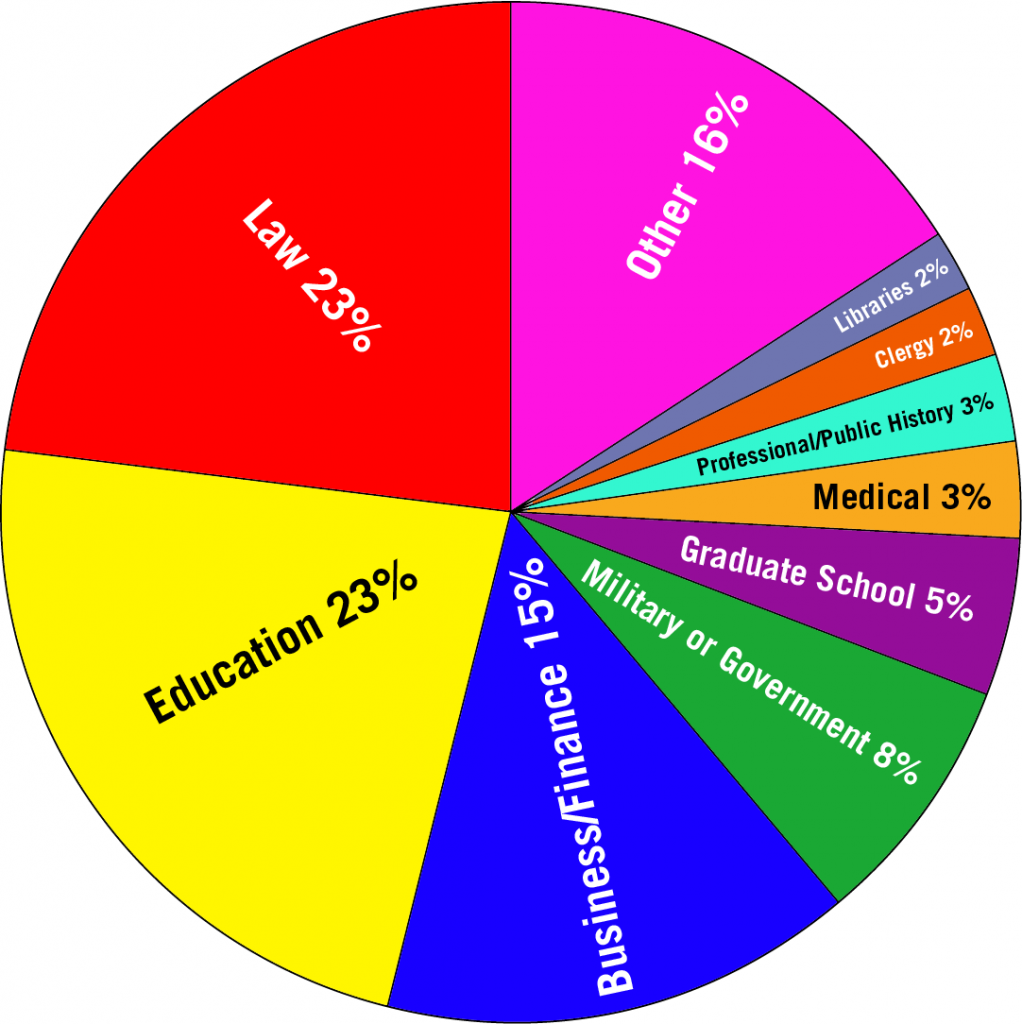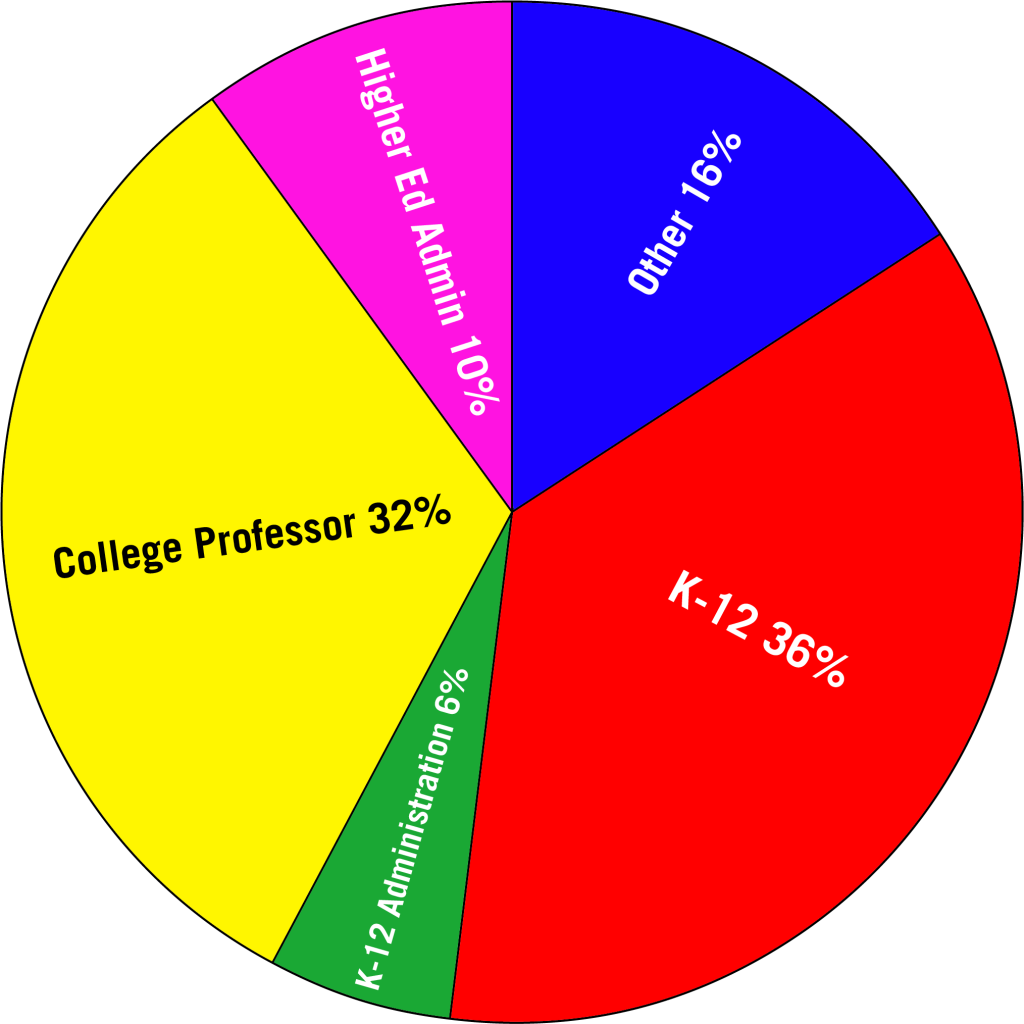Have you been told that all history majors can do is teach or become lawyers?
Do you think that history isn’t a degree that will help you get a job?
Think again!
History Majors Learn High-Demand Skills
The history major cultivates skills that are valuable in every workplace. Here are just a few examples:
Critical thinking and communication skills
Training in history gives you the ability to think critically, to formulate strong arguments based on evidence, and to express yourself clearly and persuasively in oral presentations, writing, and a variety of digital media. These are all skills that are tremendously useful in a variety of fields.
But don’t take our word for it. Check out all of these links and listen to leaders of business, law, engineering and other fields who have been saying the same thing for years: history.ua.edu/careers-in-history/
According to the UA Career Center, about half of all employers generally do not care what your actual major is. They are looking for a particular kind of thinker, someone with precisely the skills our major provides! Your future employers will build on those skills to teach you what you need to know to do your job.
So, it is perhaps no wonder that according to the most recent UA data, nearly 90% of our graduates go on to be gainfully employed, many of them outside of the field of education?
Global perspective
Apart from your particular career, history gives you skills that are valuable in a global culture and in a modern democracy:
“Myth-busting” instincts: Your ability to evaluate and analyze evidence will make it easy for you to spot these dangerous elements in our public discourse.
How to be a balanced, well-informed citizen, whatever your political persuasion: Think about a current controversial issue like our debate over Confederate flag and monuments. With an understanding of the history and context around these pieces of public memory, you can contribute to the public discourse at a high level. This holds true with a range of other issues, from the history of religions like Christianity or Islam to the history of women or civil rights.
The basis of a meaningful life
Apart from what job you get or how much money you make, cultivating a sense of history helps you develop a sense of of your place in the world, past and present. Your family, your faith, your community, our nation — all of these have pasts, and as a history major you have an opportunity to begin a lifelong relationship of learning about them.

